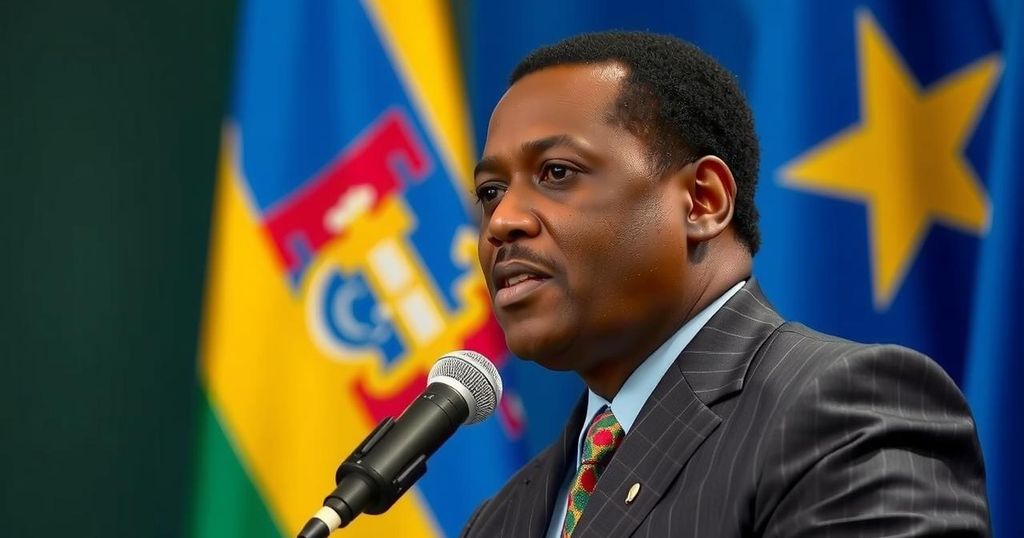Congo’s President Announces Constitutional Reform Commission Amid Opposition Concerns

On October 30, President Félix Tshisekedi announced plans to create a commission to draft a new constitution for the Democratic Republic of the Congo, amid concerns from the opposition regarding possible changes to presidential term limits. Tshisekedi cited the current constitution as outdated, and emphasized that changes should ultimately reflect the will of the people.
President Félix Tshisekedi has declared the establishment of a national commission next year aimed at drafting a new constitution for the Democratic Republic of the Congo. This announcement has raised alarms among opposition parties, primarily concerning the potential alteration of the presidential term limits. In recent statements, President Tshisekedi has described the current constitutional framework as “outdated,” pointing to ongoing issues such as prolonged government formation after elections and the strained relations between provincial governors and assemblies as pressing reasons for this reform. He emphasized that any changes to the presidential term limits should ultimately be determined by the populace rather than being unilaterally decided by the presidency. Details regarding the selection process for commission members have yet to be disclosed. Experts have noted that while President Tshisekedi possesses the authority to initiate constitutional changes, any amendments would require the backing of 60% of the parliamentary vote or must secure over 50% approval via referendum.
The Democratic Republic of the Congo has been experiencing significant political discourse surrounding its constitutional framework. The current constitution limits presidents to two five-year terms, which has fostered concerns among opposition members about potential presidential overreach and attempts to extend power. Over the past months, President Tshisekedi’s criticism of the constitution underscores a growing sentiment for reform, reflecting broader political inefficiencies and tensions within the government. Constitutional amendments in the DRC are complex, requiring substantial legislative or public support to enact changes, ensuring that any movement towards reform is closely monitored by both political allies and rivals.
In summary, President Tshisekedi’s announcement regarding the formation of a constitutional reform commission has significant implications for the political landscape of the Democratic Republic of the Congo. While the intention behind the reform appears to address systemic inefficiencies, it has raised profound concerns among opposition factions about the potential for extending presidential power. Moving forward, the involvement of the Congolese populace in these discussions will be pivotal in determining the legitimacy and acceptance of any constitutional amendments that may arise.
Original Source: constitutionnet.org







